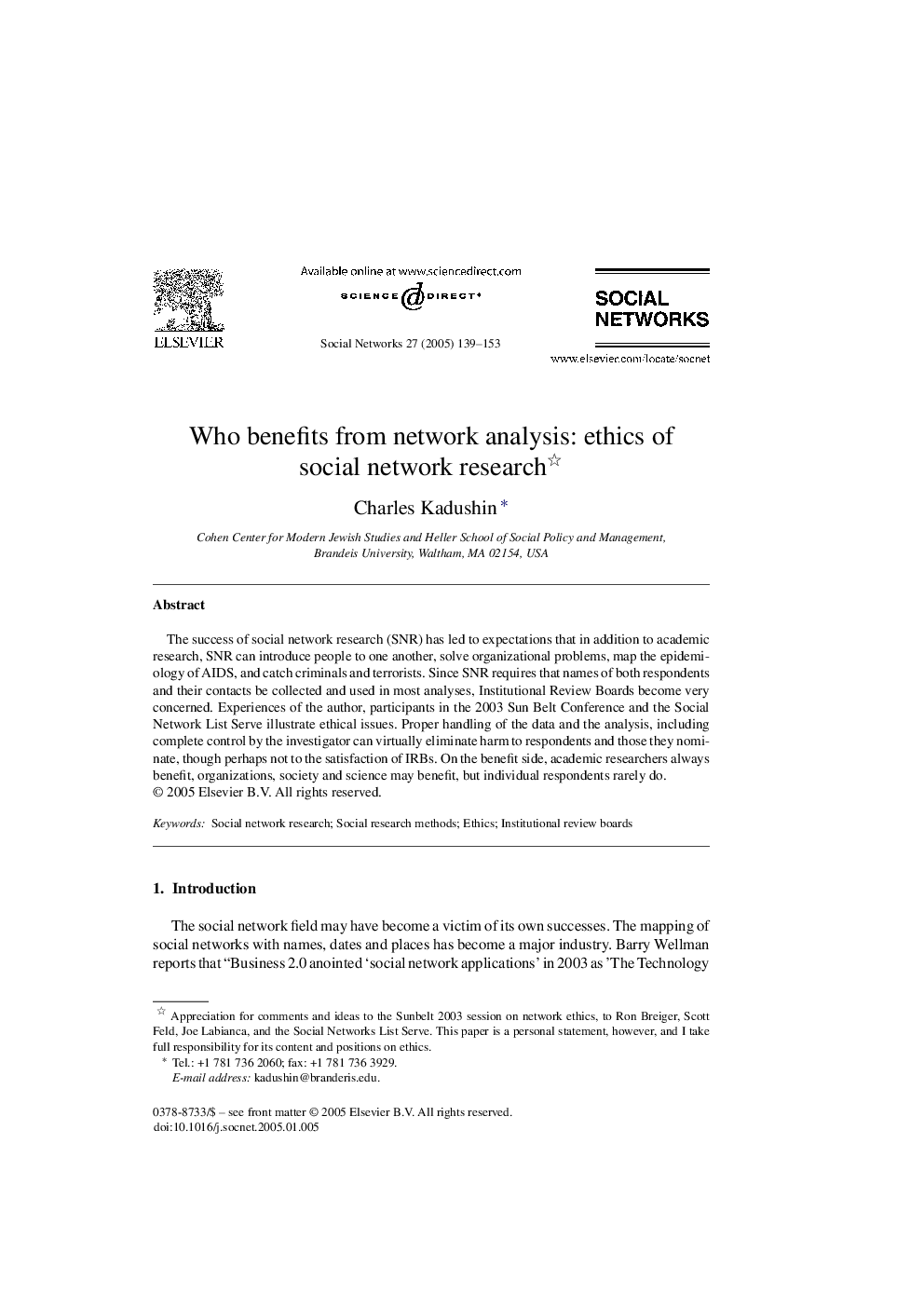| Article ID | Journal | Published Year | Pages | File Type |
|---|---|---|---|---|
| 10521762 | Social Networks | 2005 | 15 Pages |
Abstract
The success of social network research (SNR) has led to expectations that in addition to academic research, SNR can introduce people to one another, solve organizational problems, map the epidemiology of AIDS, and catch criminals and terrorists. Since SNR requires that names of both respondents and their contacts be collected and used in most analyses, Institutional Review Boards become very concerned. Experiences of the author, participants in the 2003 Sun Belt Conference and the Social Network List Serve illustrate ethical issues. Proper handling of the data and the analysis, including complete control by the investigator can virtually eliminate harm to respondents and those they nominate, though perhaps not to the satisfaction of IRBs. On the benefit side, academic researchers always benefit, organizations, society and science may benefit, but individual respondents rarely do.
Keywords
Related Topics
Physical Sciences and Engineering
Mathematics
Statistics and Probability
Authors
Charles Kadushin,
